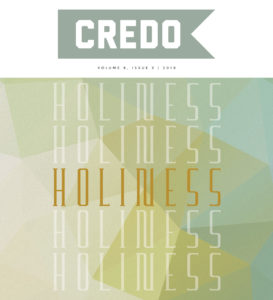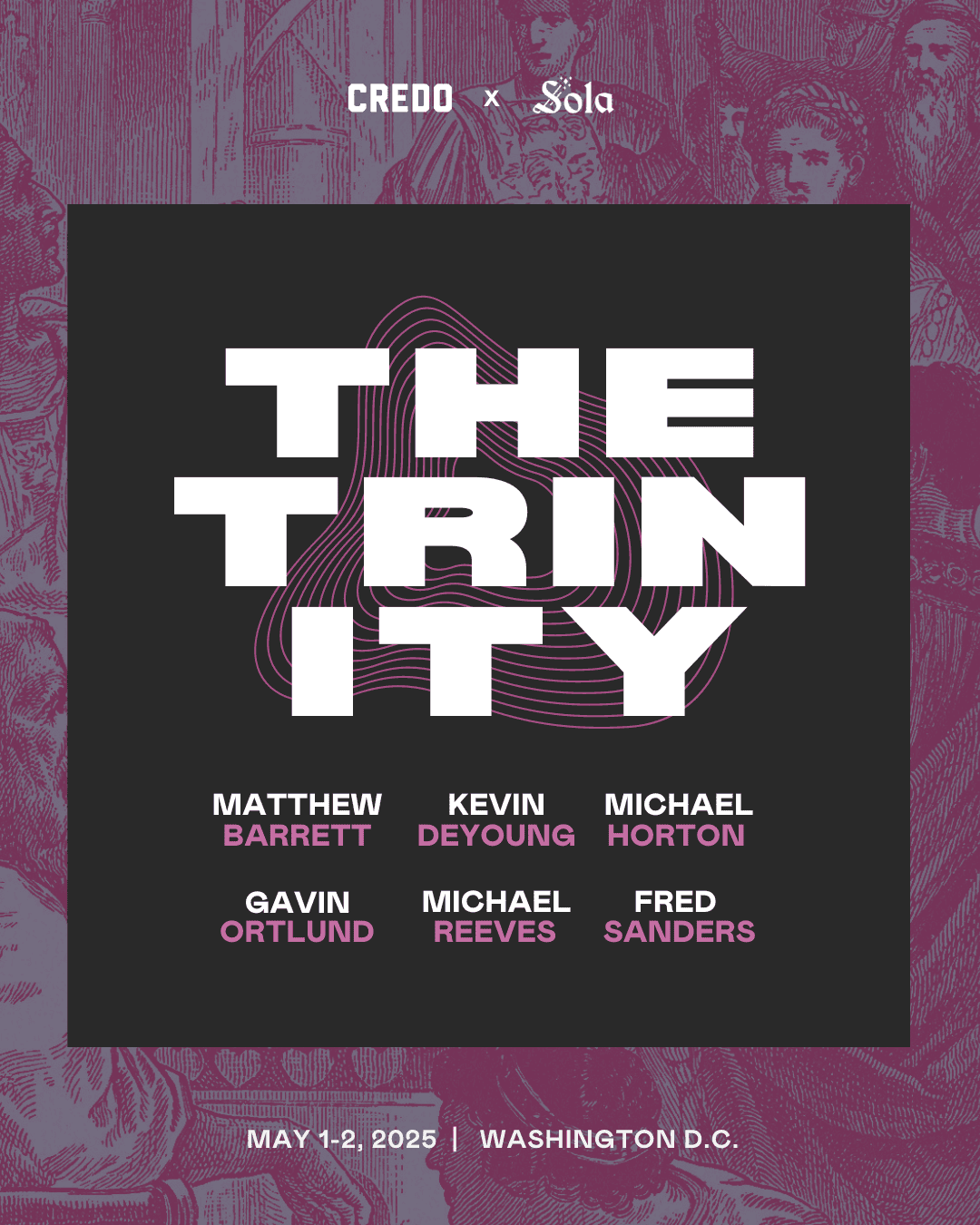“Your body is a temple of the Holy Spirit!” How readily we invoke the maxim, especially when challenging the intake of some noxious substance. Where does this line come from? What’s the argument behind it? And how might it apply beyond tobacco or alcohol, illicit drugs or tattooists’ ink?
This temple language is particularly prominent in Corinthians and Ephesians. First readers had the advantage of Paul’s own extensive teaching — these were two cities we’re told he spent most time in — and of reasonable Old Testament literacy. Reviewing the relevant background helps us appreciate the huge demand Paul makes of us.
The Temple and Holiness
Hardly an early adopter, I’m just getting into The West Wing. The famous television show introduces us to the staff surrounding the President of the United States and the primary building in which they serve him. Along with complex story-lines and an able cast, the series works for one simple premise: we get to experience what few others experience. The cameras usher us past fences and security checkpoints and penetrate successive layers of corridors and offices. We are no longer common citizens; we bypass queues, assistants, and aides to join the core advisers and the man himself in the Oval Office. We attain privileged access to the center of power.
The temple complex in Jerusalem (and the portable tabernacle before it) pervades virtually every book of the Bible and operates on the same principle as the White House. We describe God as “omnipresent,” and of course he can operate throughout his universe. But he chooses a place on earth where his presence is somehow more concentrated. God’s oval office is actually a cube at the innermost depth of the temple. Matters of national and international life and death are enacted not at an ornate desk but above the ornate ark of the covenant (esp. Exod. 25:1–22).
The parallels are instructive. Among many Christian assumptions about “holiness,” the best definitions relate to access and security clearance. To draw closer to God, one must be increasingly holy. The proverb “cleanliness is next to godliness” might be recast better as “holiness is next to godliness.” God himself is the ultimate standard of holiness. Indeed, to say that God is holy is almost redundant. God himself is the ultimate standard of holiness. Indeed, to say that God is holy is almost redundant. Share on X
Layers of security guarded access to God in the temple. Scholars talk helpfully about “graded holiness,” akin to successive checkpoints in the White House or rings on an archery target. A person had to be increasingly “holy” to move closer to God, especially to enter the two rooms at the heart of the temple: the “Holy Place” and the “Most Holy Place” with the ark. Several sacrifices in Leviticus increased one’s holiness rating. And some levels of holiness couldn’t be bought. The closest access to God was reserved for the holiest Israelite: the eldest male born into the right tribe (Levi’s) and the right family (Aaron’s). This high priest could enter closest to God’s presence but once each year, wearing his turban and its gold emblem engraved with the title “Holy to the LORD” (Exod. 28:36).
“Holiness” is thus a measure of privileged access. It is then secondary and derivative to think about how being suited to God’s presence makes one appear “set apart” or “distinct” from the wider godless world or more “pious” in behavior.
The Holy Spirit
Perhaps not directly linked, and perhaps equally surprising, the Holy/ Godly Spirit was similarly inaccessible in Old Testament times. Certainly the Spirit was at work within Israel, but his primary work was to empower individual leaders. We read of specific judges being empowered by the Spirit to rescue God’s people (e.g., Judg. 3:10; 6:34; 11:29; 13:25). Moses’ administrative spirit was shared with other judicial leaders (esp. Num. 11:16–30). King Saul lost God’s authorization—and the Holy Spirit—once David was anointed as the next monarch (1 Sam. 16:13, 14). (We should think twice about using parts of David’s confession prayer in Psalm 51:10–12. David there feared a loss of the king-making Holy Spirit in a way that Christians never face.) Specific prophets recognized the Spirit’s special work in their ministries (e.g., Mic. 3:8; Ezek. 2:2).
Old Testament figures thus looked forward to a time when everyone among God’s people would be granted the special presence of God through his empowering Spirit. When Moses’ workload was shared with seventy Israelite elders, Moses longed for a time when “all the LORD’s people” would be blessed this way (Num. 11:29). As the Israelites progressively disappointed God in his eyes and the eyes of the surrounding pagan nations, the prophets looked forward to a day when God would instill in all Israel a new Spirit (or a new experience of the Spirit). It accompanied the language of a new heart (Ezek. 36:22–32, esp. 36:26–27). Although lacking overt Spirit language, God foresaw a new covenant — a New Testament — that this age of the Spirit would bring (Jer. 31:31–34). Perhaps best known to us is Joel’s expectation of the universal breadth of this outpouring of the Spirit: on sons and daughters, on old men and young, on male and female slaves, “on all flesh” (Joel 2:28–32). We know these words because this is the phenomenon Peter identifies on the day of Pentecost (Acts 2).
God’s New Temple
Skipping forward a few centuries, we find these two issues becoming interwoven in a new and exciting way. God builds a new temple and pours out his Spirit on all flesh.
We see Jesus announcing the demise of the bricks-and-mortar temple in Jerusalem. The simplest and most profound indicator is Jesus’ teaching in John 2. After clearing out the temple, Jesus challenges the Jewish leaders: “Destroy this temple and I will raise it in three days … but he was speaking of the temple of his body” (John 2:19, 21). In a similar account, Mark makes it transparent that the old temple system is being shut down entirely. Jesus stops not only sellers from operating but also buyers and legitimate worshippers. Moreover, Mark wraps his account in the acted parable of an unproductive fig tree which Jesus curses and withers (Mark 11:12–21). And within the next day or two, we hear Jesus’ teaching from the Mount of Olives. For all the uncertainties and speculations that his graphic apocalyptic language has stirred up, it is indisputably occasioned by his insistence: “Do you see these great [temple] buildings? Not one stone here will be left upon another which will not be torn down” (13:1–2).
Even before the Roman army succeeded the demolition task in AD 70, it was clear to Christians that the Jerusalem temple was no longer the place God resided or the place to meet and worship him. We’re familiar with the crucifixion detail that, at the very moment of Jesus’ death, the temple curtain was irreparably torn in two (e.g., Matt. 27:50–51). This might indicate universal access into God’s presence, though I’m taken by the suggestion that it simply emulates the stone sealing Jesus’ tomb. The stone was moved to let disciples see that Jesus is no longer constrained to the grave. And the temple curtain was torn to show the world that God no longer chooses to confine himself to the Jerusalem temple, not that God had ever been confined.
In coming months and years, the fledgling Christians would continue to find the temple a convenient place to meet and worship and teach (e.g., Luke 24:52–53; Acts 2:46–3:3; 5:12–26). Yet they were known for teaching that God had moved out beyond its walls. Such is the accusation raised against Stephen, and his detailed rejoinder confirms the deprecated role of the temple (Acts 6:13–14; 7:44–50).
Instead of inviting the world to consider him indwelling the Jerusalem temple, God now invites the world to consider him indwelling his chosen new-covenant people. A number of biblical themes converge at this point.
Most clearly, this is the core of so much teaching about the Holy Spirit’s indwelling. In his farewell discourse in John 14–16, Jesus had comforted his disciples and assured them that his departure would mean the arrival of the Holy Spirit. Jesus hinted that the Spirit’s presence would be internalized (e.g., John 7:37–39; 14:17). And any uncertainties are dismissed by Paul in Romans 8:9–11. At the very point where the apostle turns from discussing “those” who are in the flesh to exhort “you” who are in the Spirit, he phrases the phenomenon positively: “But you are not in the flesh but in the Spirit, since the Spirit of God dwells in you … the Spirit of him who raised Jesus from the dead dwells in you … his Spirit who indwells in you.” He also gives a negative angle that singles out unfortunate individuals among the plural addresses: “And anyone who does not have the Spirit of Christ does not belong to Christ.” Every commentator waxes lyrical about these verses’ centrality in demonstrating the Holy Spirit’s indwelling as definitive of Christian identity.
Paul elsewhere casts this indwelling idea in temple language. Where God once presented himself as dwelling in a special way in the physical temple, now God presents himself as dwelling in and among his human followers. Ephesians 2:11–22 climaxes Paul’s praise of God’s salvation. Even previously distant Gentiles are now joined with Jewish believers as “members of God’s house … the whole building joined together and growing into a holy temple in the Lord.” A final clause might reinforce this; the NIV renders: “And in him you too are being built together to become a dwelling in which God lives by his Spirit.” Where God once presented himself as dwelling in a special way in the physical temple, now God presents himself as dwelling in and among his human followers. Share on X
Even less ambiguous is Paul’s teaching in the latter half of 1 Corinthians 3. In the middle of his multi-chapter rebuke of the Corinthians’ factions, Paul mingles several different metaphors for the church and its formative leaders. After mention of parents raising children and farmers raising crops, he suddenly juxtaposes: “you are God’s field, God’s building.” Construction imagery now dominates, including the blunt assessment: “Do you not know that you are God’s temple and the Spirit of God dwells in you? … The temple of God is holy — which you are” (1 Cor. 3:16–17).
Honoring God’s New Temple
With such a foundation in place, we can easily grasp Paul’s reprise a few chapters later. In chapters 5–7 he moves to condemn the Corinthians’ sexual liberalities. One argument climaxes with the same imagery we have just seen: “Or do you not know that your body is a temple of the Holy Spirit who is in you?” (6:19).
The context here helps us better grasp both Paul’s sense of what the “temple” is about and what “maintenance” new-covenant Christians should offer it. Having reminded the Corinthians that they are a temple, he moves to economic language. Perhaps speaking of slaves — or perhaps of other property such as a title deed — he closes: “And you are not your own, for you were bought with a price. Get on with glorifying God with your body” (6:19–20). We can hear Paul’s impatient indignation because all this concludes another cache of mixed metaphors. Just as Ephesians 2:11–22 mingles body and temple imagery, so does 1 Corinthians 6:12–20. Whether in theoretical or practical boast, the “spiritual” Corinthians have suggested that illicit sex does not harm their bodies. But Paul is aghast that they might take a part of Christ’s body and unite it with a prostitute. His temple imagery drives home the holiness that Christians now embody and his call for the appropriate use of that body that is home to God’s presence.
Here the call to “glorify God with your body” is firmly focused on sexual indiscretion. And Paul might even be singling out sexual behavior as more significant than other (mis)deeds. But we can certainly see how the popular Christian idiom can be extrapolated. If my body (on its own, and also in concert with other believers) is the new dwelling place of the holy God, what is and isn’t appropriate treatment?
Of course, Christians quibble over particular applications. There is wild disagreement over whether tobacco or alcohol — or headwear or denim or mild swearing or a host of other matters — dishonors God’s home. Many such matters are defined by our cultures and traditions and don’t necessarily have strong biblical warrant for or against. Working through the possibilities is important, but it’s an issue for another day. For now, it is adequate — and vitally important — that we grasp the sheer weight and grandeur of what this temple language invokes. It might be wise for me to ingest the latest dietary fad or to abstain from some new chemical cocktail. But I ought not blithely invoke “my body is a temple of the Holy Spirit” as if my task is merely to keep it in reasonable shape for the next serial tenant. Nor should we miss that Paul primarily emphasizes the church body as a whole as God’s dwelling. The language of “temple” and “holiness” reminds us that individually and corporately we are housekeeping not even a President’s office but the long-term residence of the holy King of the universe.
How, then, shall we live?


